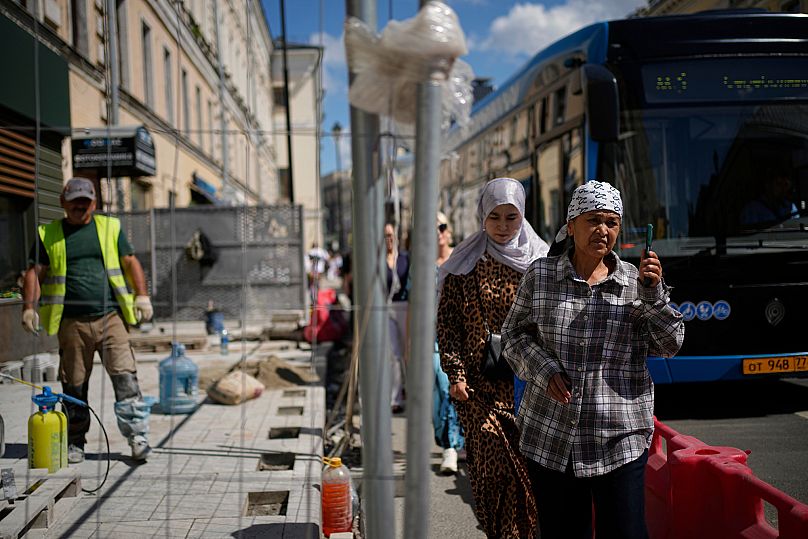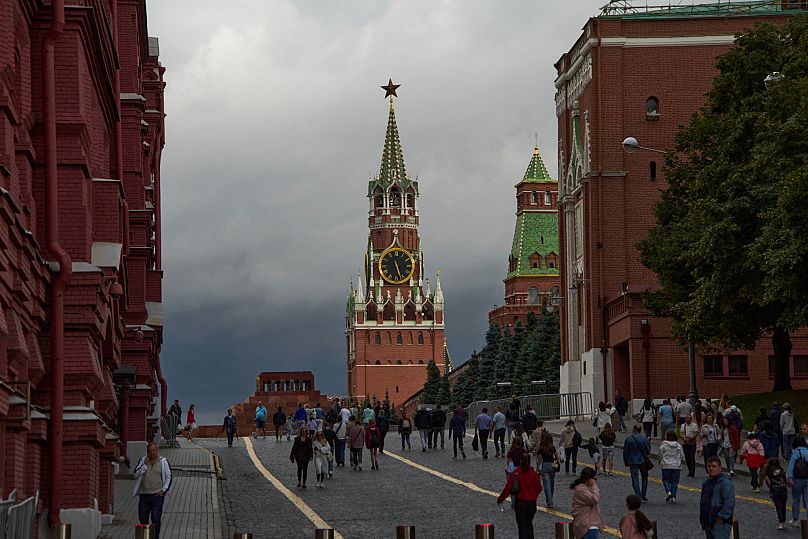Pressure on Russia's economy intensifies as full-scale invasion of Ukraine continues

Russia's financial regulator has published an order defining nine criteria by which banks may introduce a temporary limit on cash withdrawals from ATMs.
The statement on the website of the Central Bank of Russia says that from 1 September 2025, banks that have issued a payment card to a client are obliged, when disbursing cash through ATMs, to check whether a person is not under the influence of fraudsters, as well as whether the operation is being carried out by the account holder.
It is noteworthy that the central bank's order appeared against the backdrop of problems with ATMs, online services and fast payment system due to disruptions with mobile communication and internet in all regions of the country, which have been happening regularly for several months and are accompanied by problems with voice communication and navigation.
Authorities explain the outages with measures to protect against mobile internet-controlled drones at a time when the Ukrainian military (AFU) is conducting more and more successful operations on Russian territory, targeting the country's military industry.
According to official statistics in July, the volume of cash in circulation in Russia approached a historic high of 16 trillion rubles (€170 billion). According to observers, this indicates the desire of Russian residents to prepare for further possible problems.
At the same time, a fuel crisis is intensifying in Russia and the regions of Ukraine that it has seized amid rising petrol prices. According to the latest reports, at least three refineries have completely halted operations. According to various estimates, successful attacks by the AFU have reduced production by 10-15%
According to the Russian-language "Vot Tak" of the Centre for International Broadcasting TVP (Polish Public Television), problems with access to petrol have been observed in several regions in Russia.
In some areas there are huge queues at petrol stations and a system of coupons has been introduced recently. There are also reports in the Russian media that petrol is increasingly being sold only to organisations and businesses.
In an interview with the Kremlin-controlled Rossiyskaya Gazeta newspaper on Thursday, Andrei Gangan, director of the monetary policy department of the Bank of Russia, said that "the lower oil price was taken into account by the Finance Ministry when it revised its forecasts in the spring, and now the budget includes a conservative price of $56 per barrel."
At the same time, he also admitted that the Russian economy "has utilised almost all available production capacities, logistics and infrastructure, and most importantly, almost all human resources - now it is difficult to find new employees."
According to Gangan, "we need a respite and new approaches to increasing labour productivity."
In 2025, Russia's budget deficit reached 4.9 trillion rubles (€42 billion), a record high. Spending on the war already accounts for more than 40% of the budget and Russian President Vladimir Putin has said that if the fighting stops, the economy could shrink in 2027.
Russian government sources told the Reuters news agency that tax increases are inevitable: "Otherwise we simply won't be able to make ends meet, even with cuts in defence spending. Oil and gas revenues are falling and the economy cannot fully compensate."
Today



